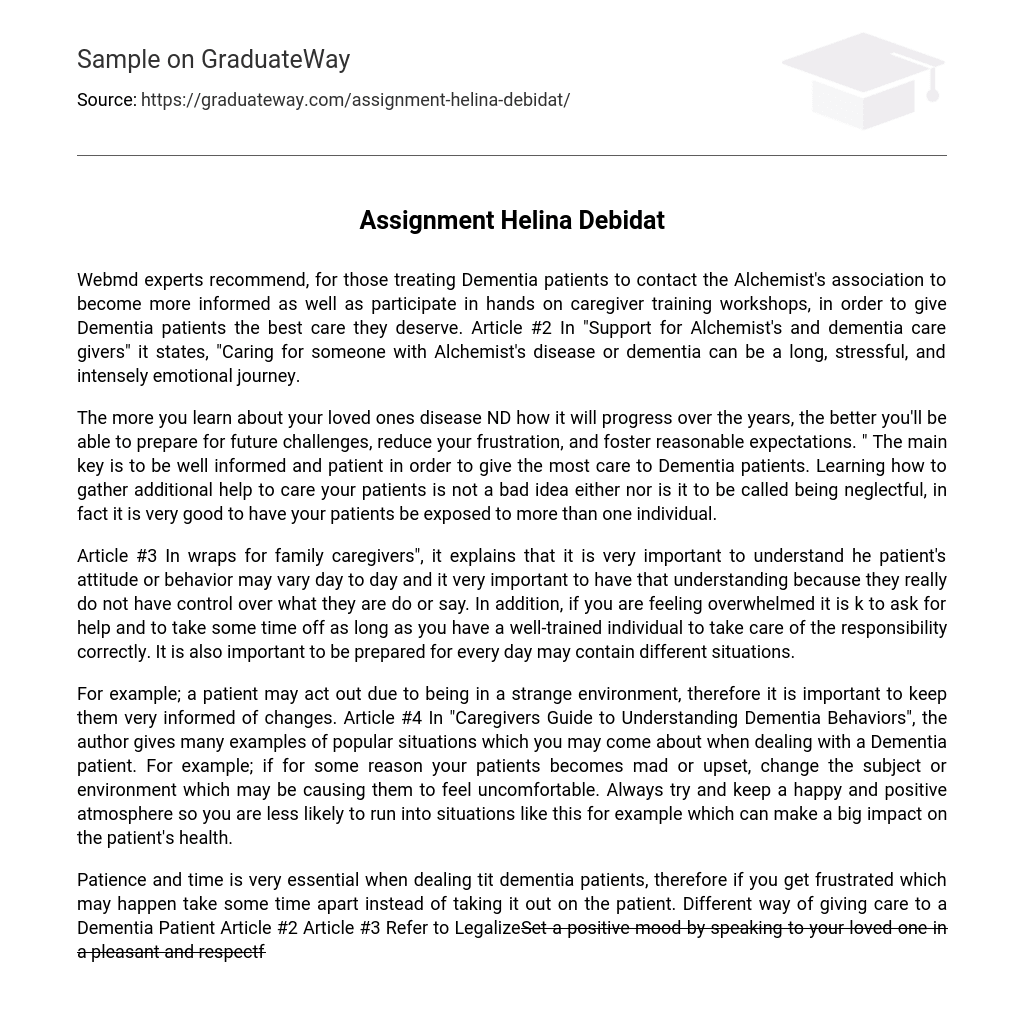Webmd experts recommend, for those treating Dementia patients to contact the Alchemist’s association to become more informed as well as participate in hands on caregiver training workshops, in order to give Dementia patients the best care they deserve.
“Support for Alchemist’s and dementia care givers” it states, “Caring for someone with Alchemist’s disease or dementia can be a long, stressful, and intensely emotional journey. The more you learn about your loved ones disease ND how it will progress over the years, the better you’ll be able to prepare for future challenges, reduce your frustration, and foster reasonable expectations. ” The main key is to be well informed and patient in order to give the most care to Dementia patients. Learning how to gather additional help to care your patients is not a bad idea either nor is it to be called being neglectful, in fact it is very good to have your patients be exposed to more than one individual.
In wraps for family caregivers”, it explains that it is very important to understand he patient’s attitude or behavior may vary day to day and it very important to have that understanding because they really do not have control over what they are do or say. In addition, if you are feeling overwhelmed it is k to ask for help and to take some time off as long as you have a well-trained individual to take care of the responsibility correctly. It is also important to be prepared for every day may contain different situations. For example; a patient may act out due to being in a strange environment, therefore it is important to keep them very informed of changes.
In “Caregivers Guide to Understanding Dementia Behaviors”, the author gives many examples of popular situations which you may come about when dealing with a Dementia patient. For example; if for some reason your patients becomes mad or upset, change the subject or environment which may be causing them to feel uncomfortable. Always try and keep a happy and positive atmosphere so you are less likely to run into situations like this for example which can make a big impact on the patient’s health.
Patience and time is very essential when dealing tit dementia patients, therefore if you get frustrated which may happen take some time apart instead of taking it out on the patient. Set a positive mood by speaking to your loved one in a pleasant and respectful manner. Use facial expressions, tone of voice and physical touch to help convey your message and show your feelings of affection.
Recognize that dementia may vary from person to person due to factors such as age. Joining groups for caregivers of dementia patients will help you learn other techniques and strategies. Take one day at a time, tackling each problem as it arises. You cannot know how a dementia patient will behave tomorrow, and worrying about tomorrow robs you of the energy you deed to deal with today.
Be patient in waiting for your loved one’s reply. If she is struggling for an answer, it’s okay to suggest words. Talking with the palliative care team’s social worker to help understand feelings and strategies. Keeping up to date with doctors will help you stay informed of new symptoms and treatments Do not assume that the patient does irritating things just to be mean. Seemingly vindictive behavior is usually beyond the control of a patient with a dementia illness. When your loved one/patient becomes upset, try changing the subject or the environment.





